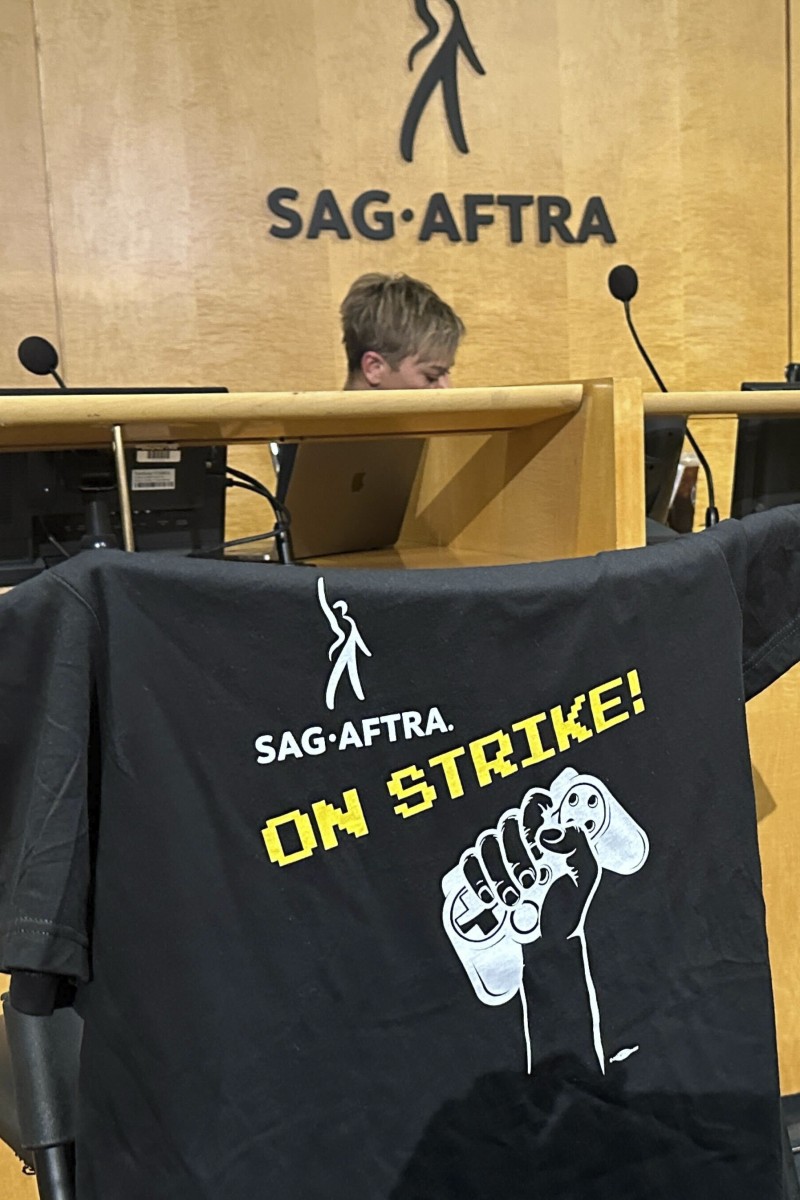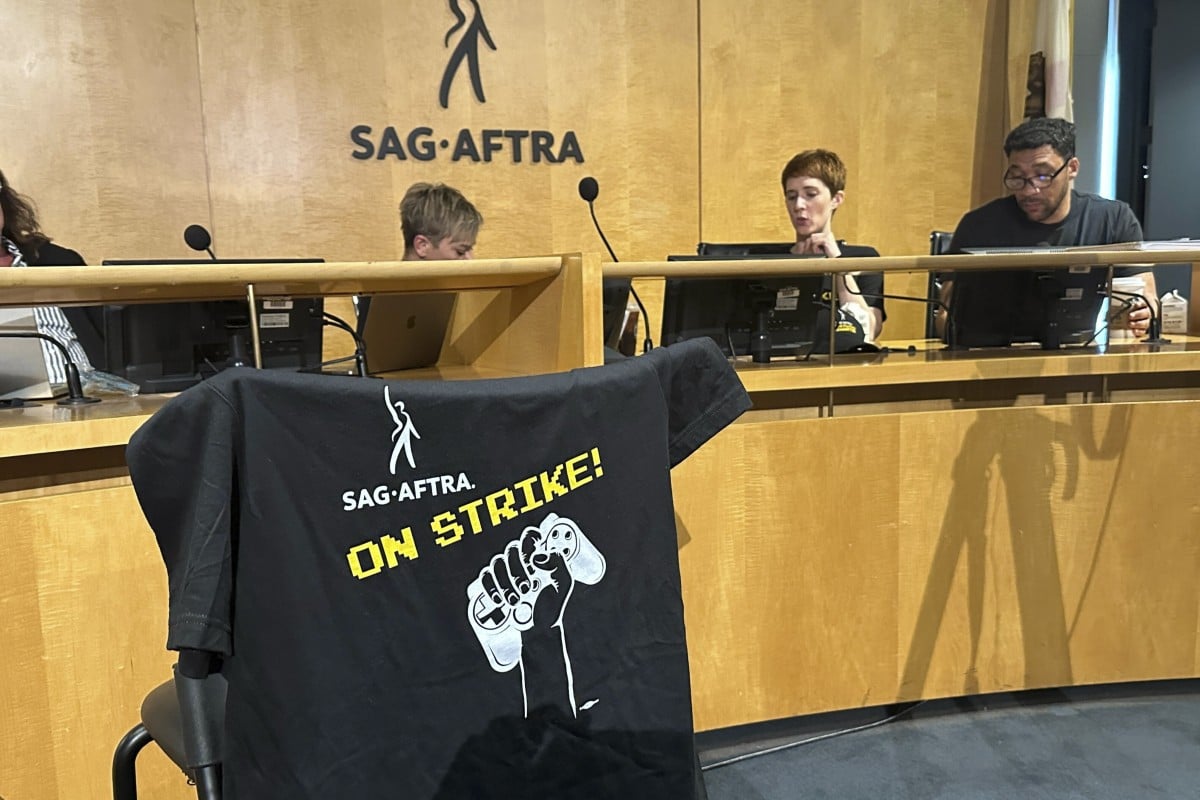
Video game performers will go on strike over artificial intelligence concerns
- Move follows nearly two years of negotiations with Activision, Warner Bros and Walt Disney, which have failed to produce deals on the use of generative AI
 SAG-AFTRA committee members and members of the board gather for a news conference at the SAG-AFTRA headquarters in Los Angeles on Thursday, July 25, 2024. Photo: AP
SAG-AFTRA committee members and members of the board gather for a news conference at the SAG-AFTRA headquarters in Los Angeles on Thursday, July 25, 2024. Photo: APHollywood’s video game performers voted to go on strike on Thursday, throwing part of the entertainment industry into another work stoppage after talks for a new contract with major game studios broke down over artificial intelligence protections.
The strike – the second for video game voice actors and motion capture performers under the Screen Actors Guild-American Federation of Television and Radio Artists – will begin at 12:01am on Friday. The move comes after nearly two years of negotiations with gaming giants, including divisions of Activision, Warner Bros. and Walt Disney Co, over a new interactive media agreement.
SAG-AFTRA negotiators say gains have been made over wages and job safety in the video game contract, but that the studios will not make a deal over the regulation of generative AI. Without guardrails, game companies could train AI to replicate an actor’s voice, or create a digital replica of their likeness without consent or fair compensation, the union said.
Fran Drescher, the union’s president, said in a prepared statement that members would not approve a contract that would allow companies to “abuse AI.”
“Enough is enough. When these companies get serious about offering an agreement our members can live – and work – with, we will be here, ready to negotiate,” Drescher said.
A spokesperson for the video game producers, Audrey Cooling, said the companies and the union had reached deals on almost everything, including wages and safety provisions, She also said the studios offered AI protections that would require “consent and fair compensation to all performers.”
Hong Kong filmmakers hope AI can help city’s stagnant movie industry
“We are disappointed the union has chosen to walk away when we are so close to a deal, and we remain prepared to resume negotiations,” Cooling said.
The global video game industry generates well over US$100 billion dollars in profit annually, according to game market forecaster Newzoo. The people who design and bring those games to life are the driving force behind that success, SAG-AFTRA said.
“Eighteen months of negotiations have shown us that our employers are not interested in fair, reasonable AI protections, but rather flagrant exploitation,” said Interactive Media Agreement Negotiating Committee Chair Sarah Elmaleh.
Last month, union negotiators told Associated Press that the game studios refused to “provide an equal level of protection from the dangers of AI for all our members” – specifically, movement performers.
Members voted overwhelmingly last year to give leadership the authority to strike. Concerns about how movie studios will use AI helped fuel last year’s film and television strikes by the union, which lasted four months.
The last interactive contract, which expired November 2022, did not provide protections around AI but secured a bonus compensation structure for voice actors and performance capture artists after an 11-month strike that began October 2016. That work stoppage marked the first major labour action from SAG-AFTRA following the merger of Hollywood’s two largest actors unions in 2012.
The video game agreement covers more than 2,500 “off-camera (voiceover) performers, on-camera (motion capture, stunt) performers, stunt coordinators, singers, dancers, puppeteers, and background performers,” according to the union.
Amid the tense interactive negotiations, SAG-AFTRA created a separate contract in February that covered indie and lower-budget video game projects. The tiered-budget independent interactive media agreement contains some of the protections on AI that video game industry titans have rejected.